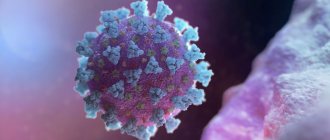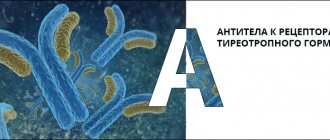Giardiasis is a disease that develops when single-celled protozoan parasites, Giardia or Giardia, enter the human body. In Russia, more than 30% of children are infected with these parasites. Children attending kindergartens, schools, and children's sanatoriums are especially susceptible to parasitic infestation.
Blood test for lamblia
In adults, a blood test reveals Giardia in 10% of cases. The earlier it is possible to diagnose giardiasis, the easier it is to get rid of parasites and avoid serious consequences.
You can take a blood test from a vein for Giardia in St. Petersburg by contacting the Diana clinic. Our center’s specialists will collect the material in comfortable conditions, and the results of the study will be ready in 2-3 days.
Why take a blood test for helminths and lamblia?
The content of the article
Parasitic infestations are very dangerous to human life and health. The causative agents of giardiasis enter the host's body by eating unwashed vegetables and fruits, contaminated water, and raw foods. Parasitic cysts can be carried by flies. Once in the host's body, the protozoa settle in the small intestine, disrupting the connection between the cells of the mucous membrane. This causes inflammation of the mucous membrane, disrupts the absorption of nutrients in the small intestine, and provokes inflammation and tissue necrosis. In rare cases, parasites disrupt the DNA structure, causing malignant tissue degeneration.
To maintain vital functions, Giardia uses not only the cells of the human body, but also nutrients supplied with food. This causes hypovitaminosis and exhaustion of the carrier. In addition, protozoa produce toxic waste products that poison the body. These toxins disrupt the immune system, cause allergic reactions, and worsen the patient’s well-being.
Noticing the listed symptoms, people often have no idea about their causes. This leads to aggravation of the disease and causes the development of severe complications. To detect parasitic infestation at an early stage, it is necessary to take a stool or blood test for Giardia.
Signs of giardiasis
Giardia lamblia is a protozoan flagellated parasite that lives in the intestines of living things. It interferes with digestion and disrupts metabolism. Giardia covers the intestinal mucosa, which causes:
- weak production of intestinal juice;
- insufficient digestion, poor absorption of food;
- intoxication with waste products of parasites.
It is better to do a Giardia test for all ailments of the digestive tract. Infection with parasites may be indicated by:
- debilitating diarrhea several times a day;
- frequent attacks of nausea, repeated vomiting;
- rumbling in the stomach, intestinal soreness;
- constant alternation between constipation and diarrhea;
- increased gas formation;
- weakness, headache, and with a long period of infection - poor sleep, skin rash, increased fatigue and moodiness.
Giardiasis is considered a rather insidious disease. Clinically, its symptoms appear only after 1-3 weeks. They are easily confused with a mild intestinal disorder, general malaise due to a cold or acute respiratory viral infection (low-grade body temperature), fatigue. If an adult body is sometimes able to cope with an invasion on its own, then children need to be treated.
Who is indicated for a blood test for Giardia?
Regular testing for giardiasis is recommended for patients at risk:
- children attending children's institutions - kindergartens, schools, development clubs;
- employees of children's institutions - educators, coaches, teachers, counselors;
- doctors - pediatricians, parasitologists, proctologists;
- employees of catering establishments - cooks, waiters, cleaners;
- representatives of sexual minorities.
It is also necessary to undergo diagnostic testing for parasitic infections if the following signs of pathology appear:
- itching and redness of the skin;
- skin rashes on the neck, armpits, and lips;
- dry epidermis like “goose bumps”;
- pain in the right hypochondrium and abdominal area;
- constipation followed by severe diarrhea;
- frequent stools, foamy stools with an unpleasant odor;
- accumulation of gases in the intestines;
- sudden weight loss without changing your diet;
- general weakness, fatigue, irritability;
- sleep disorders (insomnia);
- decreased appetite;
- retardation in physical development in children;
- bitterness and dry mouth;
- the appearance of a yellowish coating on the tongue;
- breathing problems, cough, frequent bronchitis;
- weakened immunity, frequent colds.
If a patient is diagnosed with giardiasis, all members of his family should take a blood test for lamblia, roundworms, and helminths.
general information
Giardia exists in two life phases - mobile (trophozoites) and immobile (cysts). The latter are attached by flagella to the intestinal wall of an infected living creature, damaging it, which causes swelling and irritation of the mucous membrane. Giardiasis can cause allergic manifestations, weakness, depression, and an increase in body temperature to 37.3-37.5 degrees C.
Cysts come out with feces and cause infection in people and animals. You can become infected through water; household contact is dangerous. Flies contribute to the spread of the disease.
Giardiasis requires timely detection and treatment. Children from three months to 7 years old suffer from it much more often than adults. The Unified Medical Center in St. Petersburg offers testing for giardiasis. Do not delay visiting the clinic if you or your children have symptoms of infection.
What blood test should I take for Giardia?
The most informative method for diagnosing giardiasis is a blood test for antibodies to giardia. Sometimes the patient's bile and feces are also collected for laboratory testing. These materials are examined using a powerful microscope. However, the microscopic method allows identifying parasite cysts only in 50% of cases.
For more accurate detection of parasites, the enzyme immunoassay diagnostic method (ELISA) is used. The technique is based on the antigen-antibody reaction. In the patient's blood serum, they look for specific antibodies to Giardia, which are produced in the body after the parasite enters it. Antibodies are immunoglobulins whose task is to find and bind foreign antigen. In a person suffering from giardiasis, immunoglobulins of several classes are detected in the biological material - IgG, IgA, IgM. Most often, a complete blood test is performed for antibodies to Giardia.
Antibodies can be detected in biological material only 2-3 weeks after infection. This time is necessary for the immune response. According to statistics, these immunoglobulins are detected in 39–42% of patients with gastrointestinal pathologies. The only drawback of the method is the risk of confusing giardiasis antibodies with immunoglobulins to other parasites. This may give a false positive ELISA test result.
Giardia lamblia, total antibodies
Antibodies to Giardia lamblia, the causative agent of giardiasis, are specific immunoglobulin proteins produced by the immune system in response to infection with Giardia and providing immune protection.
Synonyms Russian
Total antibodies to the causative agent of giardiasis.
English synonyms
Giardia intestinalis, Giardia duodenalis, Lamblia intestinalis, Anti-Giardia Lamblia IgM, IgG total, G. lamblia antibodies, total.
Research method
Enzyme-linked immunosorbent assay (ELISA).
What biomaterial can be used for research?
Venous blood.
How to properly prepare for research?
Do not smoke for 30 minutes before the test.
General information about the study
Giardia lamblia is a protozoan that parasitizes the small intestine and sometimes the gallbladder and causes giardiasis. They can exist in vegetative form (trophozoites) and in the form of cysts. When cysts penetrate the body, they release trophozoites that are capable of multiplying and colonizing the small intestine. Under certain conditions, some of the trophozoites again form cysts, which are released with feces into the external environment.
The route of transmission of infection is fecal-oral, through water or food contaminated with Giardia cysts, as well as through contaminated hands and household items. The source of infection is a patient with giardiasis or an asymptomatic carrier. The incubation period is 3-42 days. With this infection, the symptoms of diarrhea predominate: pain, bloating and rumbling in the abdomen, increased gas formation, frequent yellowish watery stools with an unpleasant odor, an increase in the amount of undigested fats in the stool due to impaired fat absorption, sometimes loss of appetite and vomiting. “Extraintestinal” manifestations of giardiasis include various allergic dermatoses, arthritis and rhinitis. Giardiasis can also be asymptomatic with the elimination of the pathogen in 1-3 months.
Children are most susceptible to the disease (especially between the ages of 1 and 4 years). In them, the infection is especially severe, sometimes with a lack of body weight. The high-risk group for contracting giardiasis also includes travelers, people with a low level of hygiene and social status, those who are in closed institutions (hospitals, nursing homes, prisons), sexually active homosexuals, patients with immunodeficiencies and malabsorption, as well as representatives some professions (workers of zoos, animal nurseries, etc.).
In response to Giardia, the immune system produces specific immunoglobulins (A, M, G). IgM appears first (on the 10-14th day after infection), then IgG, which is present in the blood at almost all stages of giardiasis, their level decreases 1-2 months after the death of the parasite.
What is the research used for?
- To identify acute and chronic forms of giardiasis.
- To identify parasite carriers.
- For differential diagnosis (along with other tests) for diseases with similar symptoms, such as bacterial or viral diarrhea, inflammatory bowel disease, malabsorption, some endocrine disorders, stress.
When is the study scheduled?
- For diarrhea of unknown origin.
- For chronic diseases of the gastrointestinal tract.
- For intestinal dysbiosis.
- With malnutrition, lag in physical development.
- For skin diseases: dermatitis, urticaria, eczema, neurodermatitis.
- For immunodeficiency conditions.
- For obstructive bronchitis and bronchial asthma.
- For allergies of unknown etiology.
- When examining persons who have been in contact with a patient with giardiasis or with a parasite carrier.
What do the results mean?
Reference values
Result: negative.
CP (positivity coefficient): 0 - 0.84.
Positive result
- Current acute or chronic giardiasis.
- Recently suffered giardiasis.
- Carriage of G. lamblia.
- Cross-reactions with somatic antigens or antigens of other pathogens (rare).
Negative result
- No Giardia infection.
- Seronegative period of infection (first 1-2 weeks after infection).
- Lack of immune response or weak immune response to giardiasis pathogens due to disorders in the immune system.
Important Notes
The Giardia antibody test is an indirect method for diagnosing Giardiasis. In addition, Giardia antigens can cross-react with antigens of other parasites or human antigens, which often leads to false-positive results. Therefore, it is advisable to use this analysis as an additional study, in combination with others. The detection of Giardia antigens in feces has greater diagnostic significance.
Also recommended
- Giardia lamblia antigen
- Coprogram
Who orders the study?
Gastroenterologist, pediatrician, therapist, general practitioner, infectious disease specialist.
Literature
- Guidelines MU 3.2.1882-04: “Prevention of giardiasis” dated 03.03.2004.
- Guidelines MU 3.2.1173–02: “Prevention of parasitic diseases. Serological methods for laboratory diagnosis of parasitic diseases” dated November 14, 2002.
- Agafonova E.V. Modern aspects of diagnosing giardiasis in humans / E.V. Agafonova, D.A. Dolbin, S.N. Kulikov, Yu.A. Tyurin // Rus. honey. magazine – 2008. – Vol. 16, No. 17. – pp. 146–149.
- Infectious and parasitic diseases: in 3 volumes / Zh.I. Vozianova. – K.: “Health”, 2000 – T. 1. – 904 p.
- Hill DR Giardia lamblia. In: Principles and practice of infectious disease / GL Mandell, Bennett JE, Dolin R (Eds) ; 6th ed. – Churchill Livingstone, Philadelphia, PA 2005. – 2701 p.
Preparing for a blood test for Giardia
To detect antibodies in biological material, no complex special preparation is required. On the eve of the study, doctors recommend following simple recommendations:
- You should not eat 4-6 hours before donating biological material;
- 2 days before the test, it is advisable to avoid spicy and fatty foods;
- it is important to exclude alcohol at least a day before diagnosis;
- It is advisable to limit physical activity on the eve of the study.
If at the time of the ELISA test the patient is already taking anthelmintic therapy, this may affect the results of blood tests for Giardia. All medications must be reported to your doctor. Before diagnosis, it is better to stop taking medications.
Preparation, how to take the test correctly
The test for giardiasis involves collecting venous blood. You should avoid fatty, fried foods 12 hours before your visit to the laboratory, and do not smoke for 30 minutes before donating blood. Usually the test is prescribed in the morning and is done on an empty stomach. You can drink still water.
Stool analysis is a little more complicated:
- defecation in clean, washed dishes without traces of detergents;
- do not use laxatives or enemas;
- a week before stool collection, stop taking medications;
- About 2 teaspoons of feces should be taken from different areas, especially more liquid ones;
- The stool is delivered to the laboratory while still warm, the interval should not exceed 20 minutes.
We are waiting for you in the laboratory of the Unified Medical Center. Sign up by phone and on the website.
Interpretation of blood test results for Giardia
The results of enzyme immunoassay are determined by the body's immune response. However, the severity of the immune response is influenced by many factors:
- state of immunity;
- localization of parasites in the body;
- condition of the intestinal mucosa;
- type of parasite;
- form of the pathology.
Interpretation of test results is usually carried out using the sample positivity rate (SP). This is the ratio of the optical density of the sample to the threshold value. Based on this, the results could be as follows:
- Negative
. A blood test for Giardia is considered negative if the positivity rate is less than 9.0. This indicates the absence of a diagnostically significant amount of antibodies in the serum. With a probability of about 99%, a person does not have a parasite in his body. - Positive
. A blood test for Giardia is considered positive if the positivity rate reaches 11.0. Most often, this indicates the current development of giardiasis or a recent parasitic infection. Rarely (about 5% of cases) a false positive result can be observed. This is due to antigen-antibody cross reactions. - Doubtful
. This result is stated when the sample positivity rate is in the range from 9.0 to 11.0. This may indicate the presence of minimal antibodies in the serum. Such a reaction is possible if, at the time the parasites enter the human body, the host’s immunity is greatly weakened and is not able to produce immunoglobulins. Another option is recent infection with giardiasis. To confirm the diagnosis, patients with questionable results are prescribed a repeat study after 10-14 days. During this time, in case of infection, the level of specific antibodies rises to values corresponding to a positive result.
Results are interpreted only by qualified doctors. Based on the results of a comprehensive diagnosis of parasitic infections, a final diagnosis is made and an effective treatment regimen is developed.





